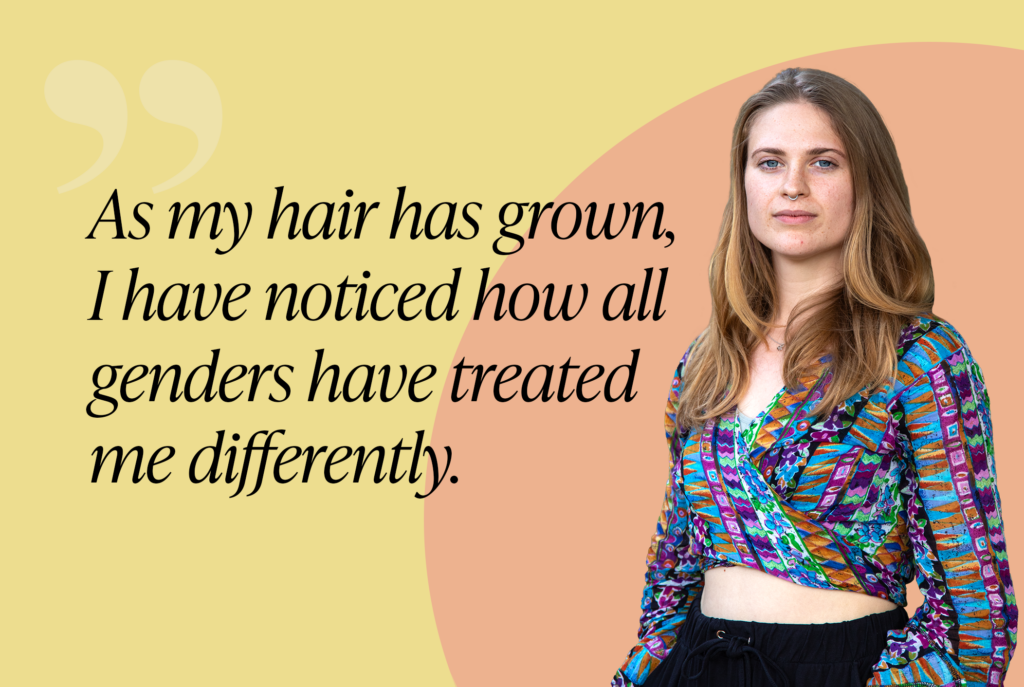From batting away male fantasies of short-haired ‘rebels’ to being asked if she and her boyfriend were a ‘homosexual couple’, Lundagård’s columnist Philippa Scholz explores her experiences around how her hairstyles have impacted people’s perceptions of her gender and sexuality.
The beginning of the pandemic coincided with a break-up with my ex. In a classic Gen Z move, I shaved my hair off to see if I had any revelations throughout the process. Not surprisingly, I didn’t.
At the time, it was a little anticlimactic. Having had short hair before, it wasn’t such a shock to others. Little did I know that it was not the buzzcut itself that would bring with it an epiphany, but the process of growing it out.
The encounter that brought this to the forefront of my mind has since become one of those bizarre stories I tell at parties. I was walking through Mårtenstorget with my now-current boyfriend when suddenly we were confronted by an odd woman:
‘Are you a homosexual couple?!’ she bellowed at us, finger-wagging towards our direction.
‘No…?’ I replied, taken aback. Trying to formulate my defence through the shock, I stuttered out ‘Why? It shouldn’t matter even if we were!’
Making a lunge to touch my chest, she mumbled: ‘You both have shaved hair and I can’t see her apples!’
At the time I managed to laugh it off, focusing more on my outrage towards her homophobia rather than her view of my gender presentation and sexuality. However, it created the crack that opened a floodgate of memories of how others have perceived me throughout my life based on my hair.
At age 8, when I first cut my hair short, I remember boys telling me I could no longer use the girl’s bathroom because I didn’t look like one. Then, during my teenage years, classmates whispered behind my back about my sexuality because they assumed my shaved sides and funky 80s clothing must mean I was gay.
As an adult, men suddenly found that my bleached short hair, leather jackets and red lipstick were a turn-on. Then, the real hard hitter, was when I did the full shave and members of my own family called me a ‘Kampflesbe’, a German slur for a lesbian who is masculine presenting. They seemed incapable of understanding how sexist and homophobic their comments were and how that made me feel.
As my hair has grown, I have noticed how all genders have treated me differently. The more traditionally feminine presenting I am, the easier it has become to make female friends. The flip side is that I also get less attention from queer women, something which has complicated my exploration of my bisexuality. Family members have told me I am becoming ‘more beautiful’ the longer it grows, whereas at times I feel like the same thing is causing me to lose my ‘spark’.
I know gender studies students could analyse my experiences to no end, adding depth and theory I do not possess. All I know is that I believe that I should be able to love who I want, dress in a way that makes me happy and choose a damn haircut that makes me feel good without others putting me in a gender or sexuality box.








